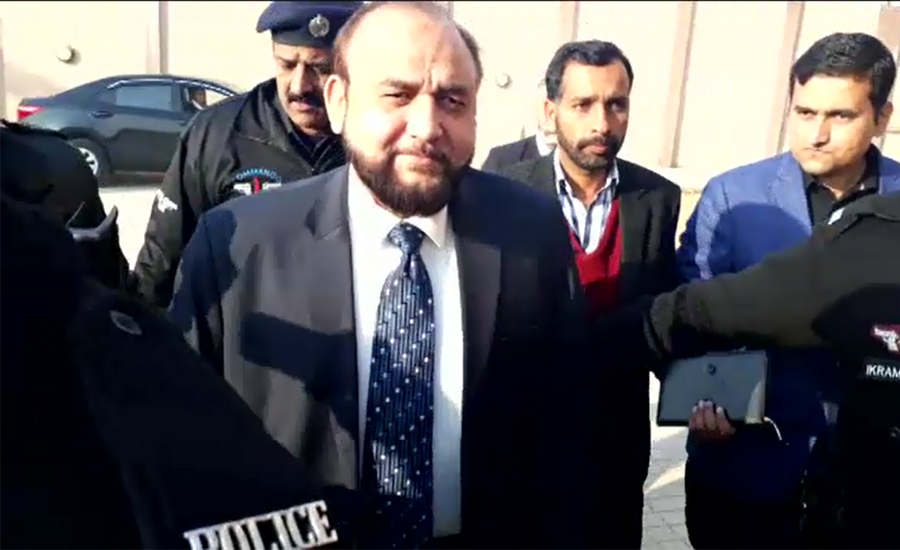Assets Reference: AC again summons JIT head on Feb 12

ISLAMABAD (92 News) – Wajid Zia, former head of Joint Investigation Team (JIT) formed by the Supreme Court to probe Panamagate scandal appeared before the accountability court in assets beyond income reference against former finance minister Ishaq Dar to record statement.
The AC judge Judge Mohammad Bashir heard the reference filed against Ishaq Dar for having assets beyond known means.
During the proceedings, while recording statement, Wajid Zia told the court that the original record of the JIT was in the Supreme Court, while the NAB prosecutor said that the record related to former finance minister was in the Volume 1 and 9 of the probe team’s report.
The AC judge Muhammad Bashir asked if letter was written to the Registrar of the apex court, adding that another letter should be sent to the top court and after that testimony of Wajid Zia will be recorded.
The court could not record the JIT head’s statement due to absence of original record.
The court again summoned Wajid Zia on February 12.
As many as 26 out of 30 witnesses have recorded their statements in the court, while one witness was withdrawn by the prosecution.
Earlier, the charges against Dar followed an investigation into the finances of former prime minister Nawaz Sharif, who was ousted in July after the Supreme Court disqualified him for not declaring salary from his son’s off-shore company.
The finance minister is one of Sharif’s closest political allies and Dar’s son has married Sharif’s daughter. Both men deny any wrongdoing.
Dar had resigned from his post amid his legal woes and a worsening economic outlook for Pakistan, which is battling to stave off a balance of payments crisis due to dwindling foreign currency reserve and a widening current account deficit.
He was initially lauded for steering Pakistan out of a balance of payments crisis in 2013 and returning the nuclear-armed country towards a higher growth trajectory.
But over the past year, he has faced criticism for his refusal to allow the rupee to weaken to ease macroeconomic pressures. He has also been accused of eroding the central bank’s independence.







